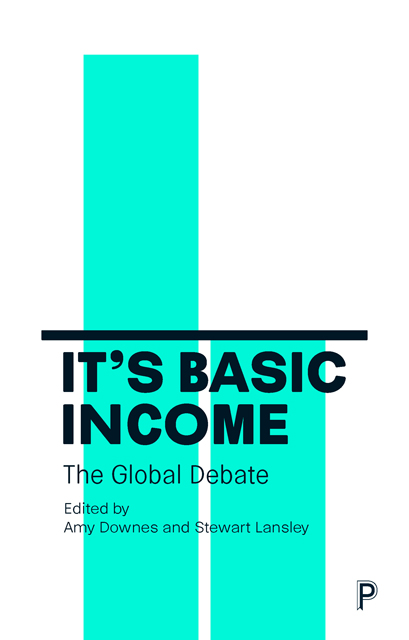1 - As artificial intelligence and robotics advance, a basic income may be the only viable solution
Published online by Cambridge University Press: 11 April 2023
Summary
‘The goal should be to leverage the power of artificial intelligence and robotics for the benefit of society.’
Recent progress in artificial intelligence and robotics suggests that we are likely to see astonishing advances over the course of the coming decades. These innovations will make the production of goods and services of all kinds more efficient and affordable and are sure to have enormous benefits for all of humanity.
There is, however, a dark side to this progress: a great many workers will likely face displacement by machines. A large percentage of jobs are, on some level, essentially routine and repetitive in nature. As machine learning and robotics technologies advance, a large fraction of these job types will be at risk of being automated.
This concern is not dependent on far-fetched science fiction-level technology: rather, it is based on a simple extrapolation of the expert systems and sophisticated algorithms that can currently land jet airplanes, trade autonomously on Wall Street, or – as recently demonstrated by Google’s DeepMind technology – beat nearly any human being at the ancient game of ‘Go’. As technology progresses, these systems will begin to match or exceed the capability of human workers in many routine jobs – and this includes a lot of workers with college degrees or other significant training. Many workers will also be increasingly threatened by the continuing trend toward self-service technologies that push tasks onto consumers.
Those who are sceptical that advancing technology might create significant unemployment are likely to cite one of the most extreme historical examples of technologically induced job losses: the mechanisation of agriculture. In the late 1800s, about 75% of workers in the United States were employed in agriculture. Today, the number is around 2%. Advancing technology irreversibly eliminated millions of jobs.
When agriculture mechanised, we did not end up with long-term structural unemployment. Workers were eventually absorbed by other industries, and over the long term, average wages and overall prosperity increased dramatically. The historical experience with agriculture is, in fact, an excellent illustration of the so-called ‘Luddite fallacy’. This idea, generally accepted by economists – if far from controversy free, suggests that technological progress will never lead to broad-based, longterm unemployment.
- Type
- Chapter
- Information
- It's Basic IncomeThe Global Debate, pp. 13 - 17Publisher: Bristol University PressPrint publication year: 2018



